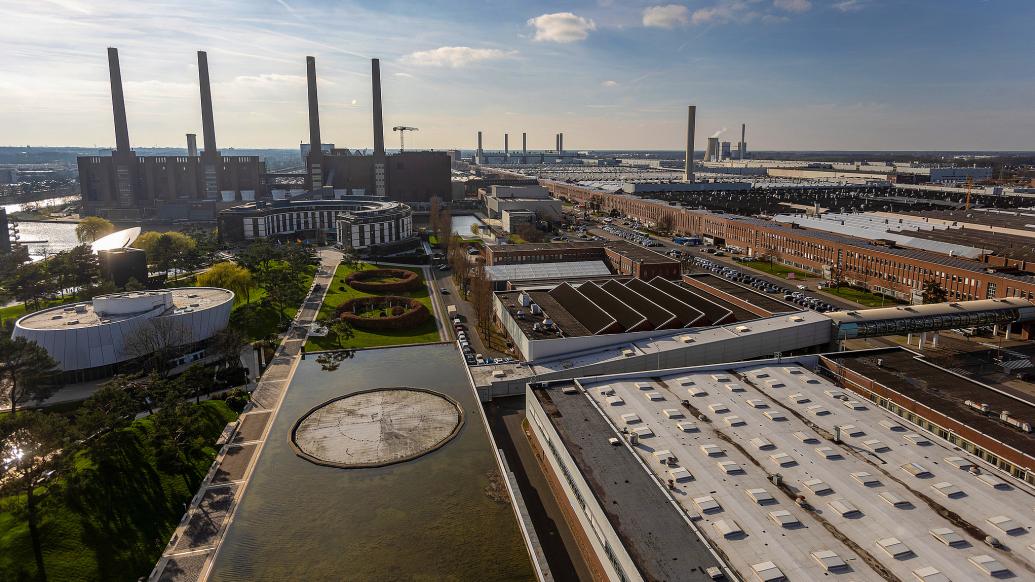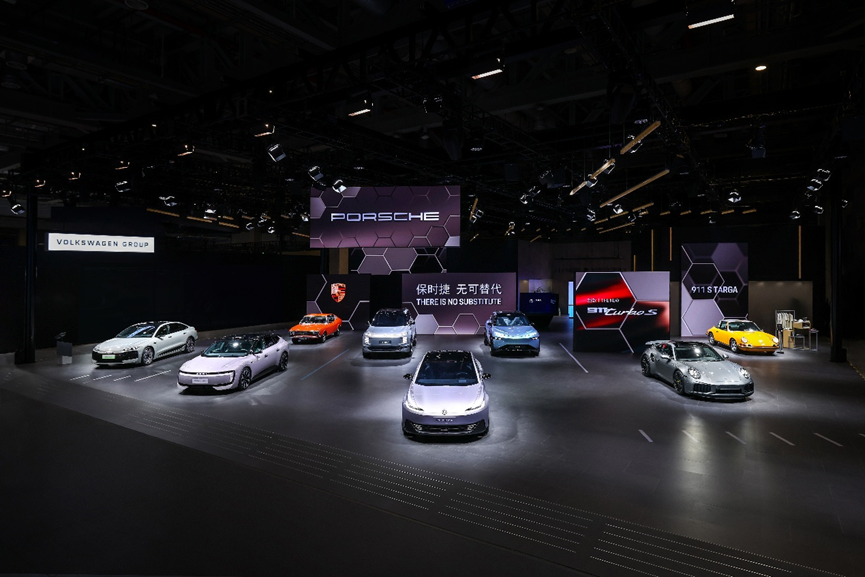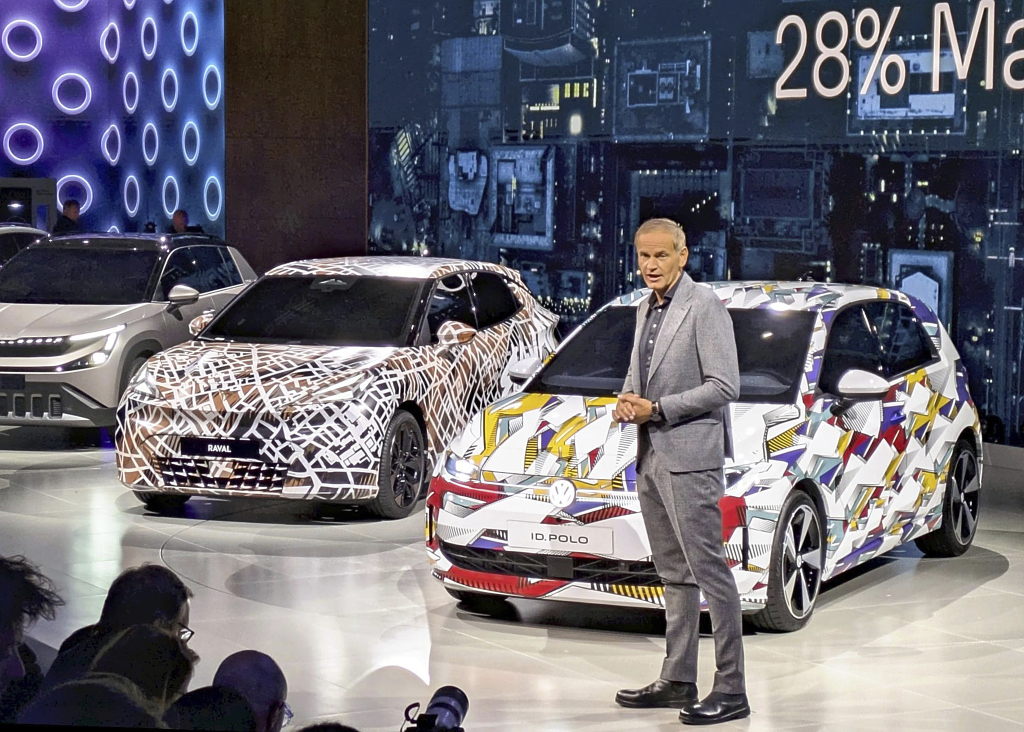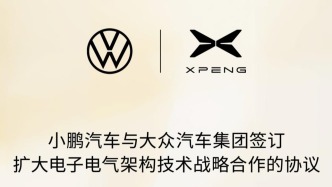
The European automotive industry is entering a period of decline.
Recently, Volkswagen announced that due to the challenges facing the European automotive sector, its factories in Germany may face closure, and the manufacturer may also consider layoffs.
If Volkswagen takes such steps, it would violate its long-term employment protection commitment, which has been in effect since 1994 and promises no layoffs until 2029.

On March 14, 2024, in Wolfsburg, Germany, the headquarters and automotive plant of Volkswagen.
Oliver Blume, CEO of the Volkswagen Group, stated in a message that the entry of new competitors into the European market, the declining status of Germany as a manufacturing location, and the need for "decisive action" were critical concerns.
Thomas Schaefer, CEO of the Volkswagen brand, noted that efforts to reduce costs are "yielding results," but the "headwinds have clearly intensified."
Affordable and high-quality Chinese vehicles are imposing significant pressure on European automakers. Volkswagen Group's financial report for the first half of the year showed that the Volkswagen brand's profit was €966 million, down from €1.64 billion during the same period last year. The company stated that continuing this trend would prevent it from achieving its goal of saving €10 billion by 2026, making layoffs and plant closures unavoidable.
It is reported that the last time Volkswagen closed a factory was in 1988, when it shut down a plant in Pennsylvania, USA. This means it has not closed a factory in 36 years.
This action will undoubtedly cause discontent. Thorsten Groeger, the chief negotiator for the IG Metall union, remarked on the union’s website that management’s approach is "not only shortsighted but also dangerous, as it could destroy the core of Volkswagen."
Senior employee representative Daniela Cavallo stated, "Management has failed... and the consequences are an attack on our employees, locations, and labor agreements."
Stephan Weil, the governor of Lower Saxony and a board member of the Volkswagen Group, agreed that the company needs to take action but urged Volkswagen to look for alternative methods to cut costs to avoid plant closures.
In fact, the wave of layoffs in the European automotive industry has already begun, with pressure now shifting from the upstream supply chain to the original equipment manufacturers (OEMs).
Public data shows that, in 2024, 20 automotive parts suppliers in Germany with annual revenues exceeding €10 million went bankrupt, a staggering increase of 60% year-on-year. Even the industry giants are struggling. ZF Friedrichshafen, one of the top three parts suppliers globally, announced previously that it would lay off 14,000 employees, roughly 25% of its workforce, by the end of 2028.
Additionally, companies like Faurecia, Continental, and Bosch have already adopted cost-cutting measures. As of the end of July 2024, dozens of global large automotive parts manufacturers have announced layoffs, collectively affecting more than 40,000 jobs, mainly in Germany and France.
Industry analysts suggest that the news of potential plant closures and layoffs from Volkswagen may be a form of "strategic maneuver," as the contradictory policies of the EU and the German government are harming Volkswagen, which finds itself caught in the middle. Specifically, the EU has previously set a carbon dioxide emission target for 2025, stating that the average emissions for new cars on the market must be 93.6 grams per kilometer, requiring automakers to control the carbon emissions of their products or face heavy fines. Except for Tesla and Geely (including Volvo), brands like Mercedes-Benz and Volkswagen do not meet these standards, and even Japanese automakers exceed the limit.
Vehicles that exceed the limit will incur fines of €95 for every gram of CO2 over the threshold.
To avoid fines from the EU, car manufacturers must increase their sales of electric vehicles. However, European automakers face high costs for electric vehicles, and expanding sales relies heavily on government subsidies for eco-friendly purchases.
Nevertheless, the German government, after a period of subsidies, has declared "no more funds." Initially, the subsidy for each electric vehicle was €6,000, but due to the financial strain caused by the Russia-Ukraine conflict, this was reduced to €4,500. Subsequently, a ruling from Germany's highest court defined €60 billion in the 2024 government budget as "misappropriated," leading the government to cancel the eco-bonus and eliminate subsidies starting at the end of 2023.
This means that, on average, every electric vehicle sold by Volkswagen in Germany would cost an additional €4,500. Combined with the impact of Chinese electric vehicles flooding the European market, selling Volkswagen's electric cars has become notably more challenging. If electric vehicles do not sell, Volkswagen faces substantial fines from the EU when the deadline arrives.
Therefore, the possibility of Volkswagen announcing plant closures and layoffs is, to some extent, a means of pressuring the government to reinstate subsidies and seek leniency in EU carbon emission regulations.
On the other hand, mainstream European automakers have increasingly invested in China in recent years. Due to China's mature supply chain and lower costs, the trend of industrial migration from Germany has emerged.
The "2023/24 Business Confidence Survey Report" released by the German Chamber of Commerce in China shows that over 90% of German companies in China plan to continue their operations there, with more than half intending to increase their investment.
This trend is particularly evident in the automotive sector. Last year, Audi invested about 18.2 billion yuan to support its new energy vehicle project in Changchun; BMW opened its third factory in Shenyang this year, announcing that the annual production capacity of BMW Brilliance will reach 650,000 units while increasing its stake in Brilliance, making it the first automaker to surpass a 50% stake in a joint venture.
The Volkswagen Group has not only increased its investment in SAIC and FAW Volkswagen but has also expanded its investments in Volkswagen Anhui. Furthermore, it will collaborate with Xpeng to develop the next generation of electric vehicles, utilizing Xpeng’s electronic architecture and smart technologies. It can be said that China is now Volkswagen's most critical market.
However, while the European automotive industry is indeed facing significant challenges, one should not assume that Volkswagen's potential plant closures and layoffs mean it is on the verge of collapse. Instead, leveraging the more favorable Sino-German relations and the rise of the Chinese automotive industry, the Volkswagen Group and the German automotive sector are actively seeking new growth opportunities.


